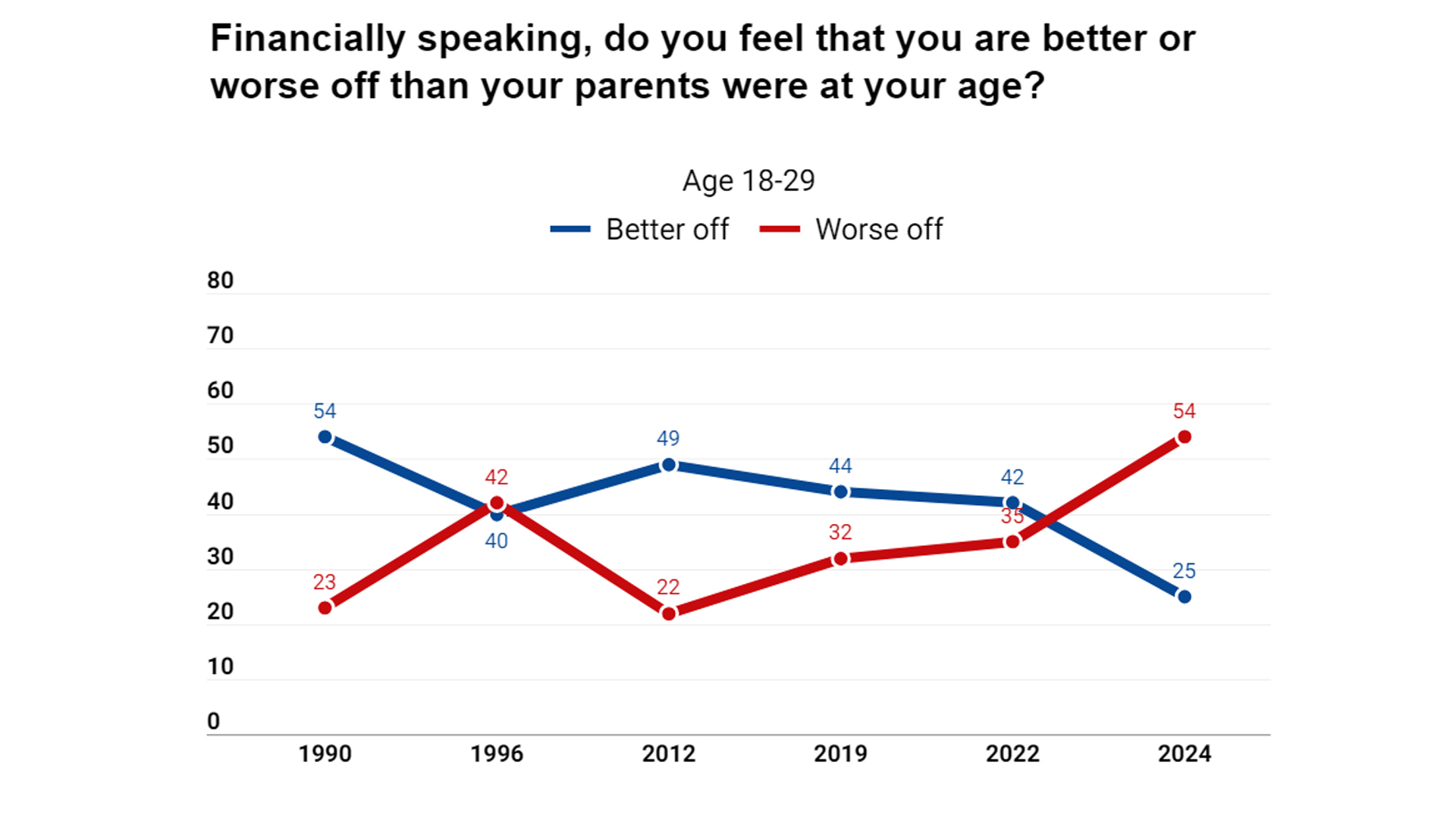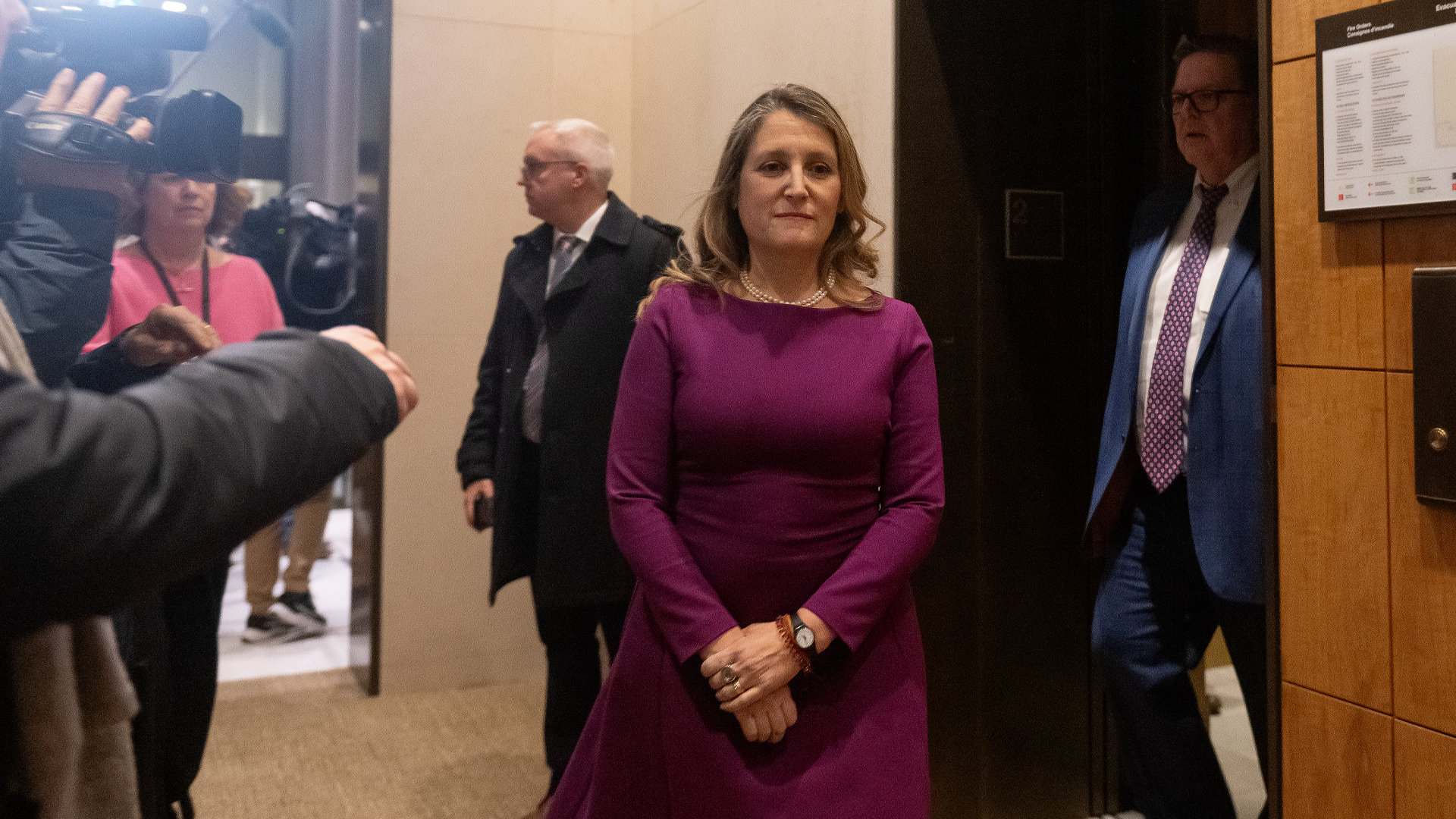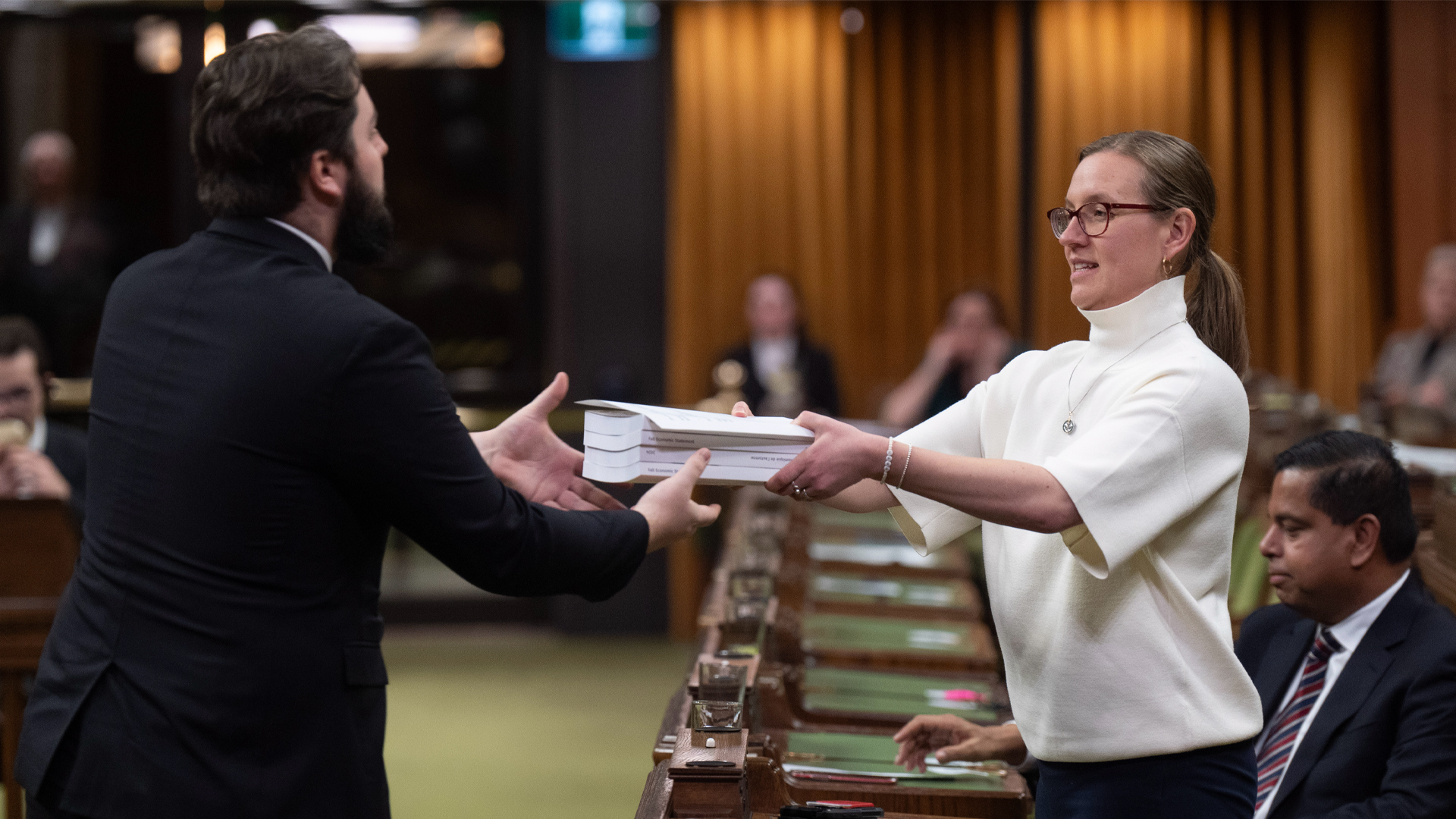
My subject is the relationship between Canada’s foreign policy and its domestic agenda, between the way it governs itself at home and the way it projects power and influence abroad.
My message is simple: Foreign policy is not social work; it is the promo- tion and defence of our citizens and their interests overseas. If we are dis- tracted and divided at home, we can- not project power and influence abroad. Canada matters to the world only to the degree that Canada remains united at home.
We can’t get the balance between foreign and domestic policy right unless both are aligned to serve the fundamental purpose of national gov- ernment: maintaining the national unity of our country. This is what dis- tinguishes the functions of the federal civil service from those of the provinces and municipalities.
In every decision you make, there are two questions to ask: Will this policy weaken or strengthen the capacity of the federal government to maintain a united Canada? Will this policy strengthen or compromise the equality and indivisibil- ity of Canadian citizenship?
I tell my students that good public policy is built on a stubborn respect for facts, however inconvenient they may turn out to be. But good public policy is also disciplined by the art of the possible.
When an official has presented the available options, it is up to elected rep- resentatives to make the choice. All the choices are hard. Often they are between lesser evils. In making these choices, the public’s expectations are unforgiving: Give us leadership, they clamour, pro- vided none of us pays any price.
But politics is not just about mak- ing friends, it is also about defeating enemies. We measure greatness in politicians not just by the number of their friends, but by the quality of their enemies, by the types of interests they are prepared to buck in the name of the public interest.
A true leader expands the bound- aries of possibility. Pierre Trudeau did not give us the Charter of Rights and Freedoms we were clamouring for. He gave us the Charter we never thought was possible.
If leadership is the heart of good public policy, accountability is its soul. You owe an account of our steward- ship. You exercise power, not in your name, but in the name of citizens.
An equal partnership requires respect by the federal government for provincial jurisdiction and equal respect by the provinces for the key fed- eral jurisdiction: maintaining the equal- ity of citizenship for all Canadians.
The test that our political system and our federal bureaucracy must pass is whether it represents us all. The pub- lic service has been a vital ladder of social promotion for all Canadians. Equality is not just an ideal in Canada: it’s a necessity.
The federal civil service has to prove ”” every day ”” that all Canadians are equal, and that all Canadians can serve.
Now let me say something about the ethics that ought to guide public service. My inspiration here is a lecture entitled ”œPolitics as a vocation,” by the German sociologist Max Weber. He distinguished between the ”œethics of ultimate ends” and the ”œethics of responsibility.” The ethics of ultimate ends were what the French students in the streets of Paris had in mind when they chanted, ”œSoyons réal- istes, demandons l’impossible.”
A public servant’s job is to recon- cile the impossible and the real; the electoral promises of politicians and the resource constraints and constitu- tional limitations of government.
Reconciling ultimate ends and responsibility, as Isaiah Berlin emphasized, can be a difficult, some- times tragic affair. We have to choose, with insufficient evidence, time and insight, just as we are, here and now, and whatever we do, we are bound to lose something. But we must choose.
Political indecision destroys bureau- cracies, weakens their esprit de corps. Leaders must lead, and they often have to do so utterly in the dark. An ethics of responsibility also identi- fies that a public servant has a duty of care to invisible strangers, the people who are never in the room when the key decisions are made.
You must speak for your fellow citi- zens in the places where they cannot speak for themselves. When the auditor- general found out the people’s money was being wasted on a sponsorship program in Quebec, she came out and said so, and let the chips fall where they may. She did her job and the country is better for it. That is the ethics of responsibility in action.
An ethics of responsibility is no recipe for risk avoidance. If it were, the public service of Canada would never have helped bring about medicare, Aboriginal self-government, the repa- triation of the Canadian Constitution or our Charter of Rights and Freedoms. The opposite of responsibility is irre- sponsibility: making spending commit- ments that weaken our federation, that tax our grandchildren, that stifle inno- vators and wealth creators. Responsible government solves problems; it doesn’t pass them on to future generations.
The battle in provincial politics between spending on health or spending on education is a battle between the generations for control of the pub- lic purse. Wise public policy must be anchored in intergenerational equity, and that means the generation in power has to have the wisdom to mod- erate its claims for the sake of those who are coming after.
A key element of an ethics of responsibility is making sure that, in our public policy, we don’t allow a gap to open up between our rhetoric and reality. As a New York Times headline recently asked: ”œWas Canada just too good to be true?”
Good public policy is not a politics of propaganda and national self- delusion. It is an attempt to match our national self-image and our capabilities as a people. The present government is struggling to close the gap between pre- tending to be a good international citi- zen and failing to fund our foreign aid commitments; pretending to be a peacekeeper and failing to fund our defence establishment; pretending to be green and failing to fund our invest- ment in environmental sustainability.
It is as if we conquered the deficit in the 1990s, at the price of starving those areas of core responsibility ”” foreign and defence policy ”” that are essential to the maintenance of federal authority at home and abroad. The government is now putting this right, and it is to be hoped that, pressures of minority government notwithstand- ing, they will stay the course.
A strong foreign policy is essential to the maintenance of national unity at home, just as a strong federal govern- ment at home is critical to our influence abroad. If we are committed to a ”œresponsibility to protect” strangers from genocide and ethnic cleansing and fail to fund, equip and deploy a combat-capable military, it is not just our foreign partners who will start to think we are a joke. Our fellow citizens will lose confidence in their country.
When our national government fails to persuade our partner to the south to abide by NAFTA arbitration mechanisms, millions of Canadians, not just the people in the lumber industry, question whether government can protect the country’s economic sover- eignty.
When the federal gov- ernment is unable to pry open the American market to our beef producers, it is not just beef producers who suffer. We weaken public confidence in government, not just for them but for all Canadians.
When a Canadian citizen, born in an Arab country, finds himself arrested in the US, deported to a foreign coun- try, where he is tortured, what are the rest of our new Canadians to think about the capacity of our government to protect them? The Canadian pass- port must confer indivisible rights and protection to all its bearers, regardless of their origin and place of birth.
Confidence in government does not require a big bureaucracy. The num- ber of federal employees in relation to the country’s labour force has dropped by almost half since the 1950s. The percent- age of total government revenue taken by federal authorities has fallen from 60 to about 40 percent since the 1950s.
This figure cannot and should not fall further. Unless we want a govern- ment that is just a head waiter to the provinces, we need to ensure that the federal government’s revenue capacity and effective areas of jurisdiction remain what they are now. We need to fully fund its constitutionally uncon- tested areas of jurisdiction and main- tain its mandate, not to manage social programs, but to guarantee that however they are managed in each province, they deliver to Canadians equality of rights and entitlement.
Our federation depends on burden- sharing between rich and poor provinces, but let’s look at equalization with an unsentimental eye. In the Maritimes recently, I was struck by the number of people who find the rhetoric of equaliza- tion condescending, as if the only way to keep the Maritimes in Confederation is to maintain EI, even when it means pro- viding a disincentive for the hard work Maritimers have always been ready to put in. We need to figure out how to unlock the economic potential of the poorer parts of Canada so that we can get beyond equalization to equality.
Our federation has embarked on a trial of Aboriginal self-government. This is a worthy experiment, but Aboriginal Canadians have the same right to accountable, efficient, well-designed services, delivered by their order of gov- ernment, as any other Canadian.
We do not want a system that turns over large parts of the country to governments that lack the capacity to deliver rights, justice and equality. The federal government must not only end the tutelage of the Indian Act, but ensure that Aboriginal peoples finally get government as good as any provid- ed to other Canadians.
The key to our foreign policy influ- ence is get our own domestic poli- cies right. Spaniards avidly follow Canadian politics, because it is full of lessons for meeting the challenge of Basque and Catalan nationalism. Canada matters to Spain and to every society in the world seeking to share a political community among peoples of different languages, religions, tradi- tions and cultures.
Our job on the international stage is to show that we can. If we fail at this, nobody will care what we do about any- thing else. From the mid-1960s to the 1990s, we wasted a huge amount of time and energy trying to reinvent federalism to meet the demands of Quebec and other provinces. We turned inward and lost our capacity to speak out to the world. Let’s not make that mistake again. What makes the sponsorship scan- dal in Quebec serious is that it leads us ”” and the world ”” to ask whether we have weakened our capacity to remain a model. Damage has been done, but let us never give up.
I believe in identifying problems when they are still on the horizon. I do not believe a new national unity crisis is inevitable, and if it comes, I do not believe that the battle cannot be won. But those of us who care about the pub- lic service of Canada have to make our position clear years in advance. And we need to win a prior victory. We need to revive faith in the political process itself.
This is the core task of the politi- cal class: to maintain the people’s faith in the system that governs them. This is the criterion by which to judge our political class ”” are they meeting this test? The past few months have been a good show, but have they been good politics?
The nobility of public service is that you do attempt the impossible ”” every day ”” managing a country as magnificently complex as this one, and doing so peacefully.
As you balance the ethics of ulti- mate ends and the ethics of responsi- bility, I urge you to keep faith with those students in Paris. Soyons réalistes. Demandons l’impossible.







